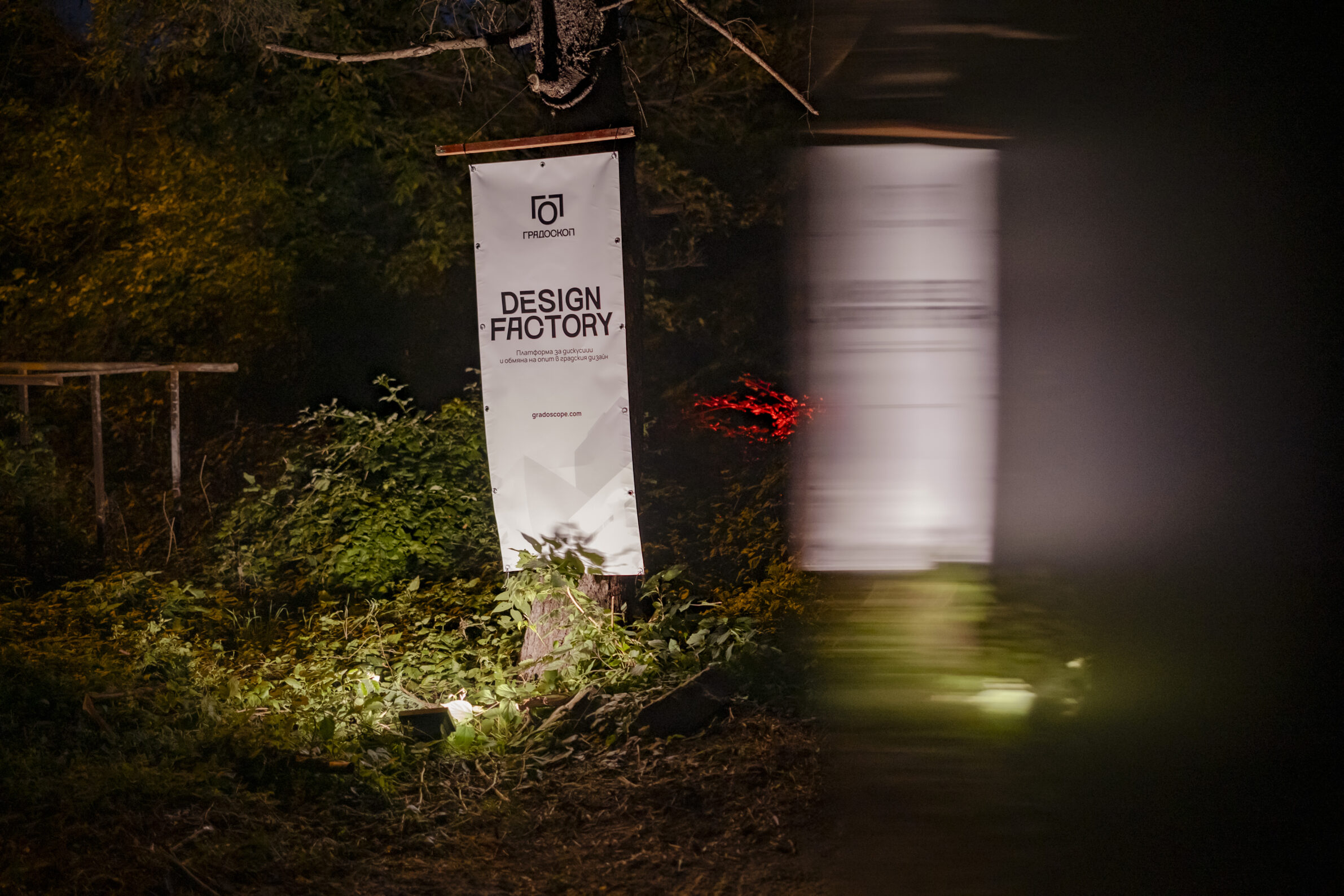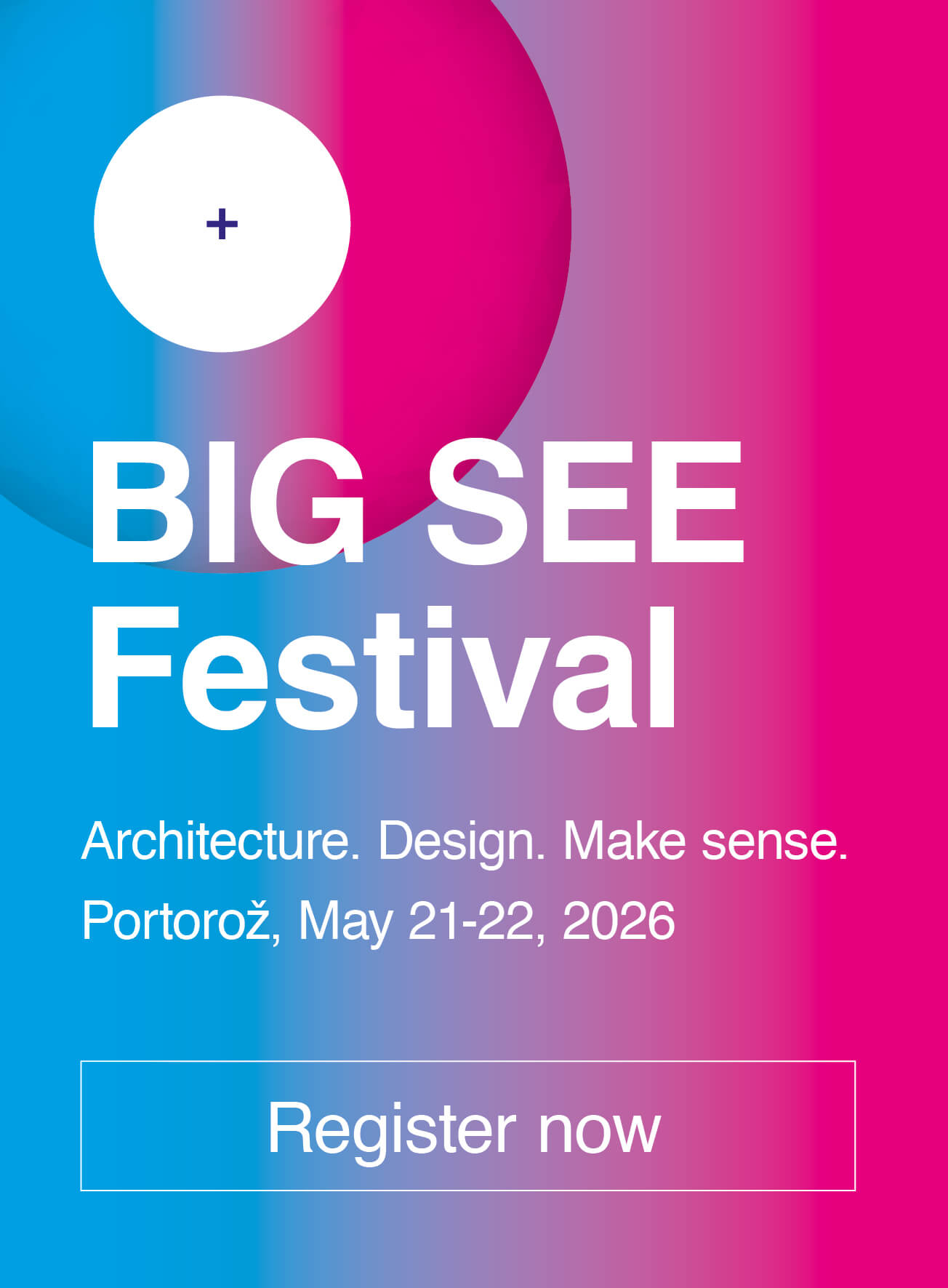Gradoscope, a collaborative practice
Gradoscope is a collaborative practice focused on reinventing urban spaces, consisting of a multidisciplinary team with expertise in architecture, urbanism, communication, design, and multimedia. The collective was founded in 2021 with the idea that cities are created not only by experts but also by the people who live in them. Therefore, the practice aims for an open, inclusive, and sustainable approach to city processes. Based in Bulgaria, but with an extensive European partner network, Gradoscope is active in various challenging and unexpected environments in Bulgarian urban and peripheral regions. The multidisciplinary nature of the team is reflected in the projects and formats they initiate and the scales through which they work.
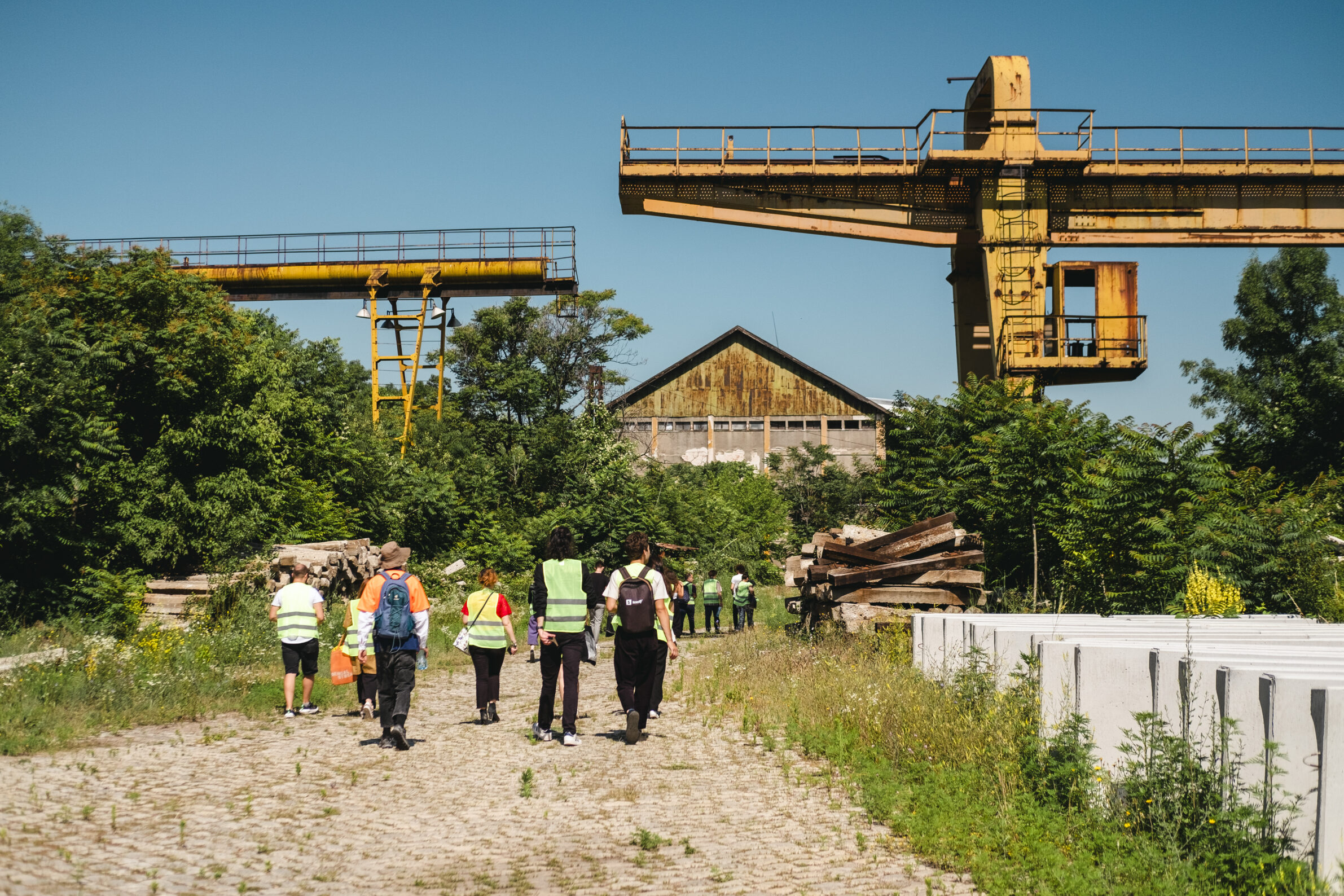
Unused railway infrastructure that will become a public park
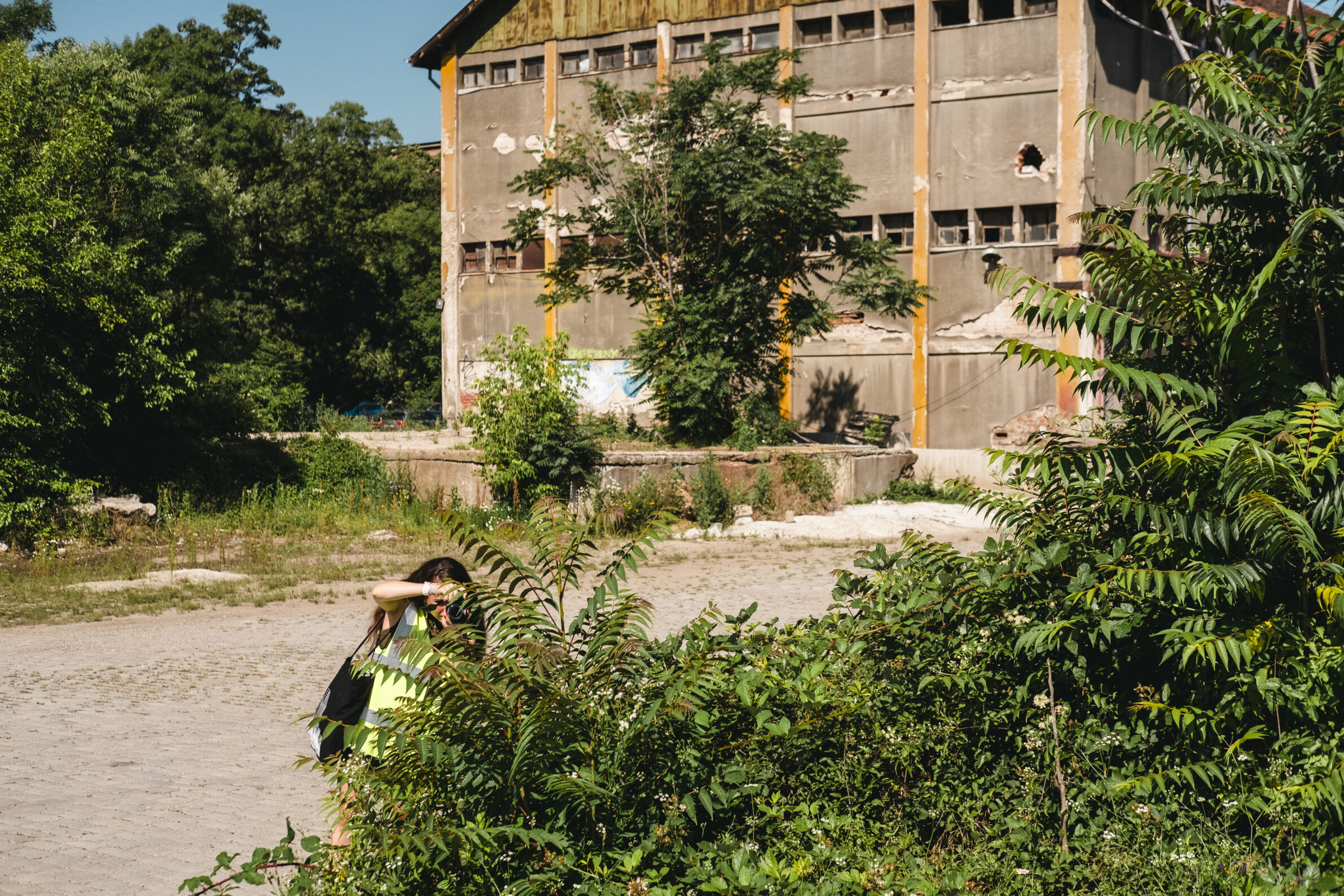
Former railway cargo buildings to be developed as a circular material hub
Events, workshops, and performative experiences are employed to engage citizens, corporations, and policymakers in an active conversation about the future of urban spaces. Careful urban and social analysis is used to support policymakers, responsible businesses, and activist organisations in their efforts to develop the urban environment. These formats are combined to develop and promote good practices through concrete actions and interventions identified by Gradoscope. One such long-term flagship project is “New Greenways for Old Railways” an initiative to create a shared concept for the resilient integration of the railway areas of Stochna and Poduyane cargo stations into the urban tissue of Sofia. As an independent multidisciplinary organisation, Gradoscope seeks to facilitate a dialogue between different parties and to bring together citizens, experts, businesses, and institutions in a productive discussion about a widely accepted vision for the sustainable development of the sites.
The project started at the beginning of 2022 with an initial urban analysis of the sites and their potential for urban integration by the architects Pavel Yanchev and Teodora Stefanova from Gradoscope. Together, the pair are examining the wider spatial context, which includes the areas from Stochna Station to Poduyane-Razpredelitelna Station, and seeking comprehensive, integrated solutions for the future of this space.
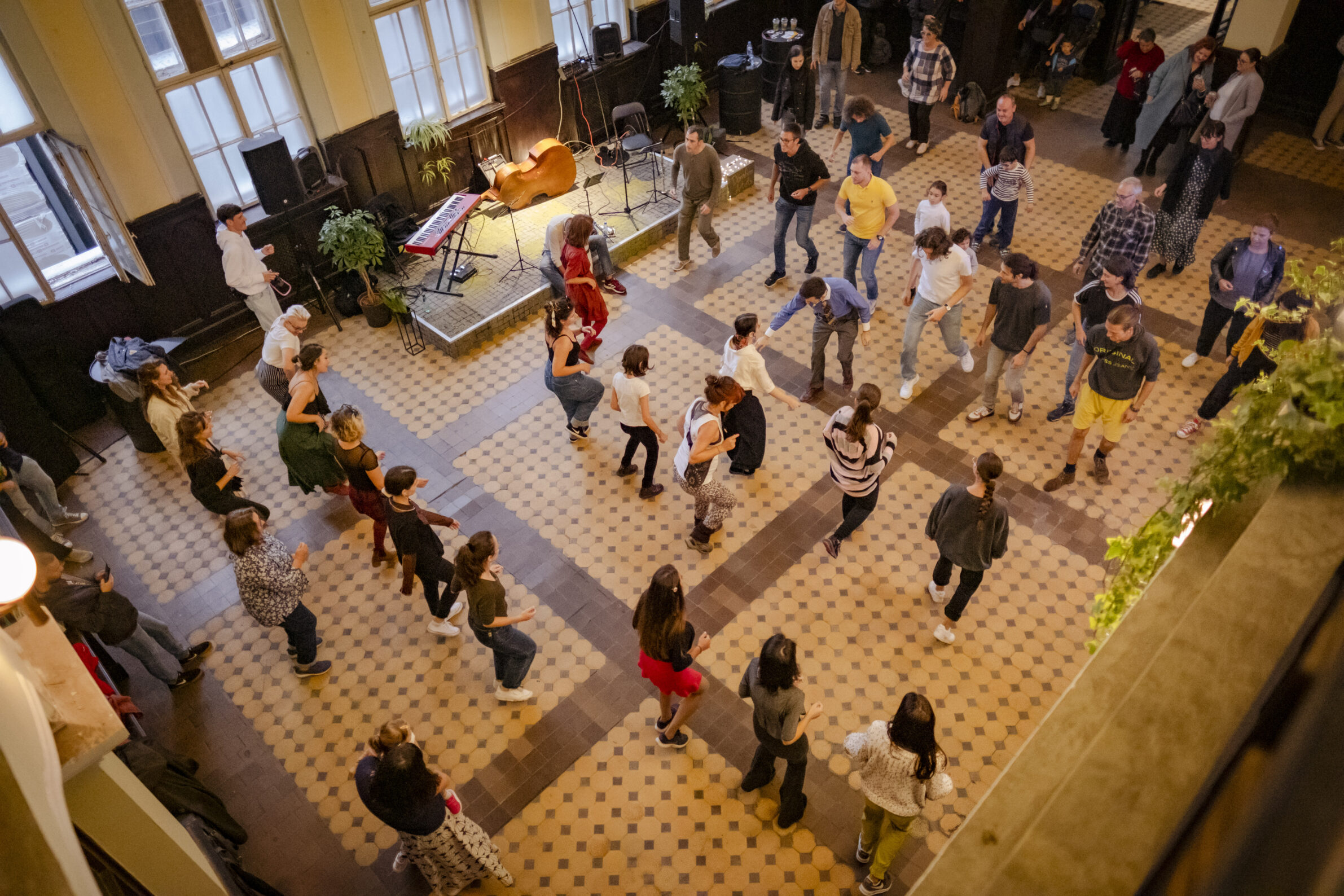
Activation of the unused building of Stochna Gara as a cultural hub
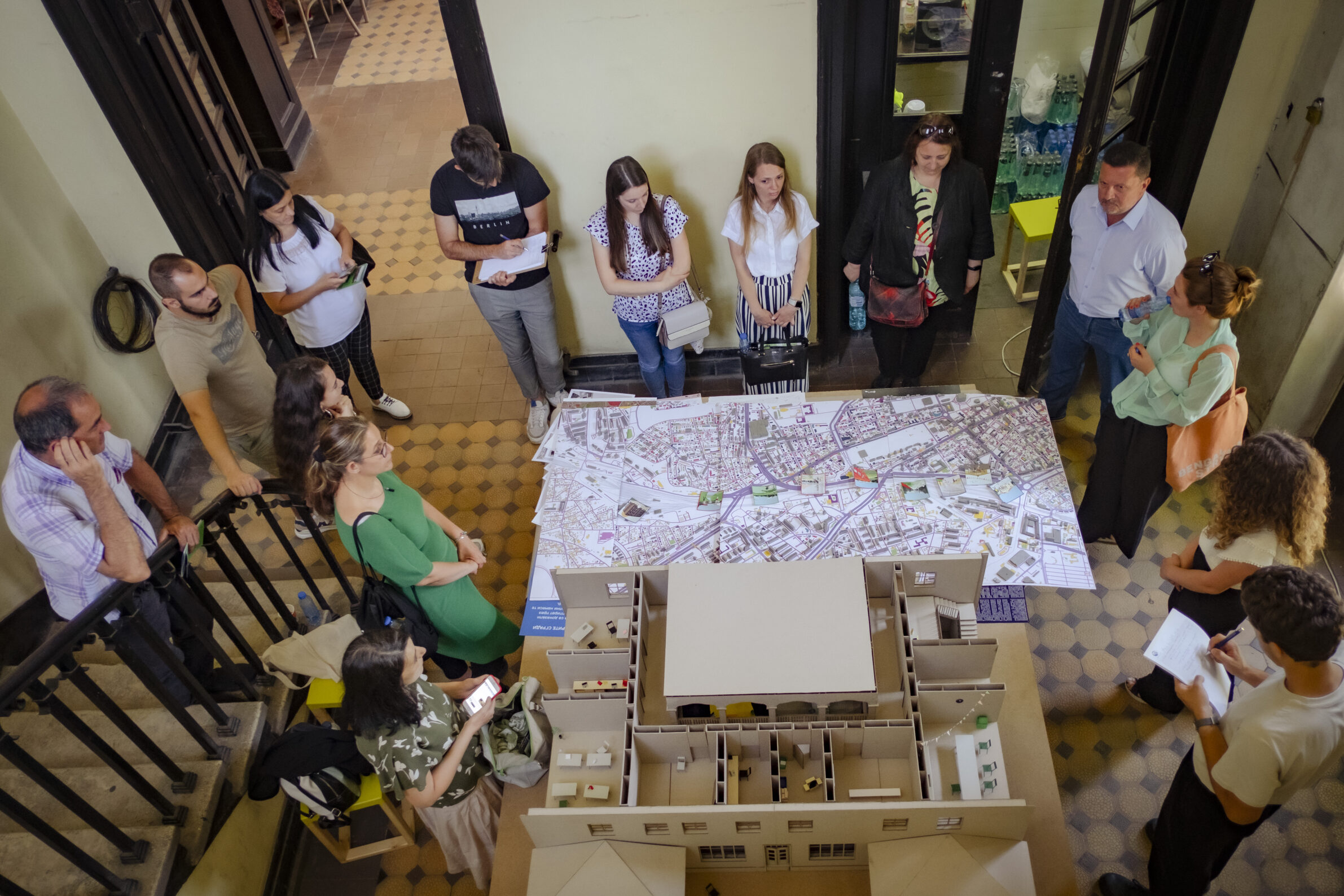
Regeneration workshop with experts on the railway site
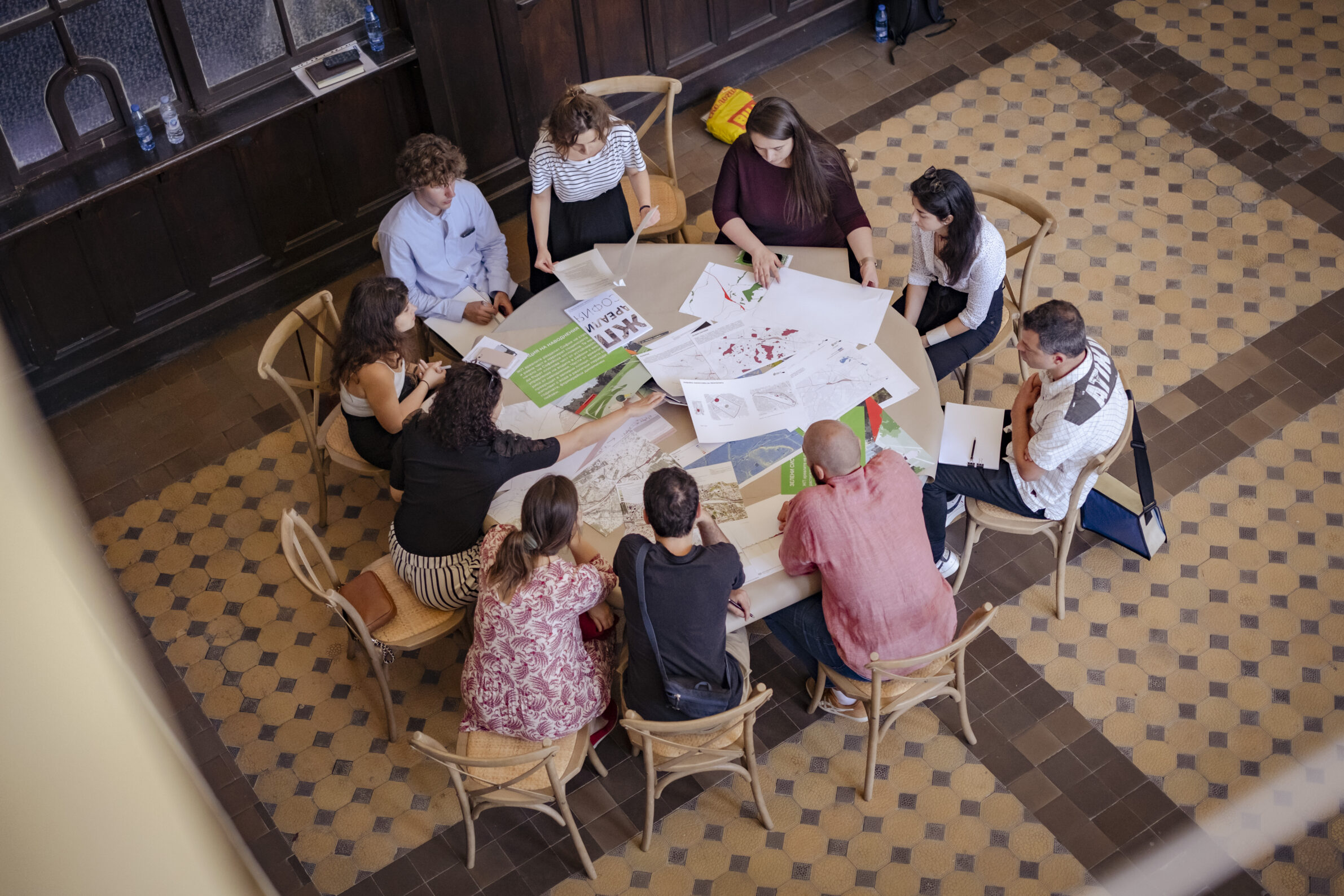
Workshop with experts
The initiative continued with an academic collaboration between ETH Zurich, Università degli Studi di Napoli, Politecnico di Milano, and the University of Architecture, Civil Engineering, and Geodesy (UACEG). The students proposed different scenarios for the future, including reusing existing buildings for manufacturing, covered markets, shared offices, and cultural activation. These public functions are complemented by new developments meeting the social needs of the residents of the adjacent neighbourhoods by constructing affordable housing with additional services. Another suggestion was to incorporate the sites into the urban fabric through the development of intermodal transportation hubs with a mixed-use character. Projects sought solutions to connect the north and south communities through the construction of pedestrian and bicycle bridges and a series of active public spaces. The projects were presented as interactive exhibition concepts for the development of the site of the abandoned railway station of Stochna Gara. The open format served as the basis for discussion with representatives of institutions, students, experts, and public actors to identify the urgent projects, potential, and strategies to revive the railway site.
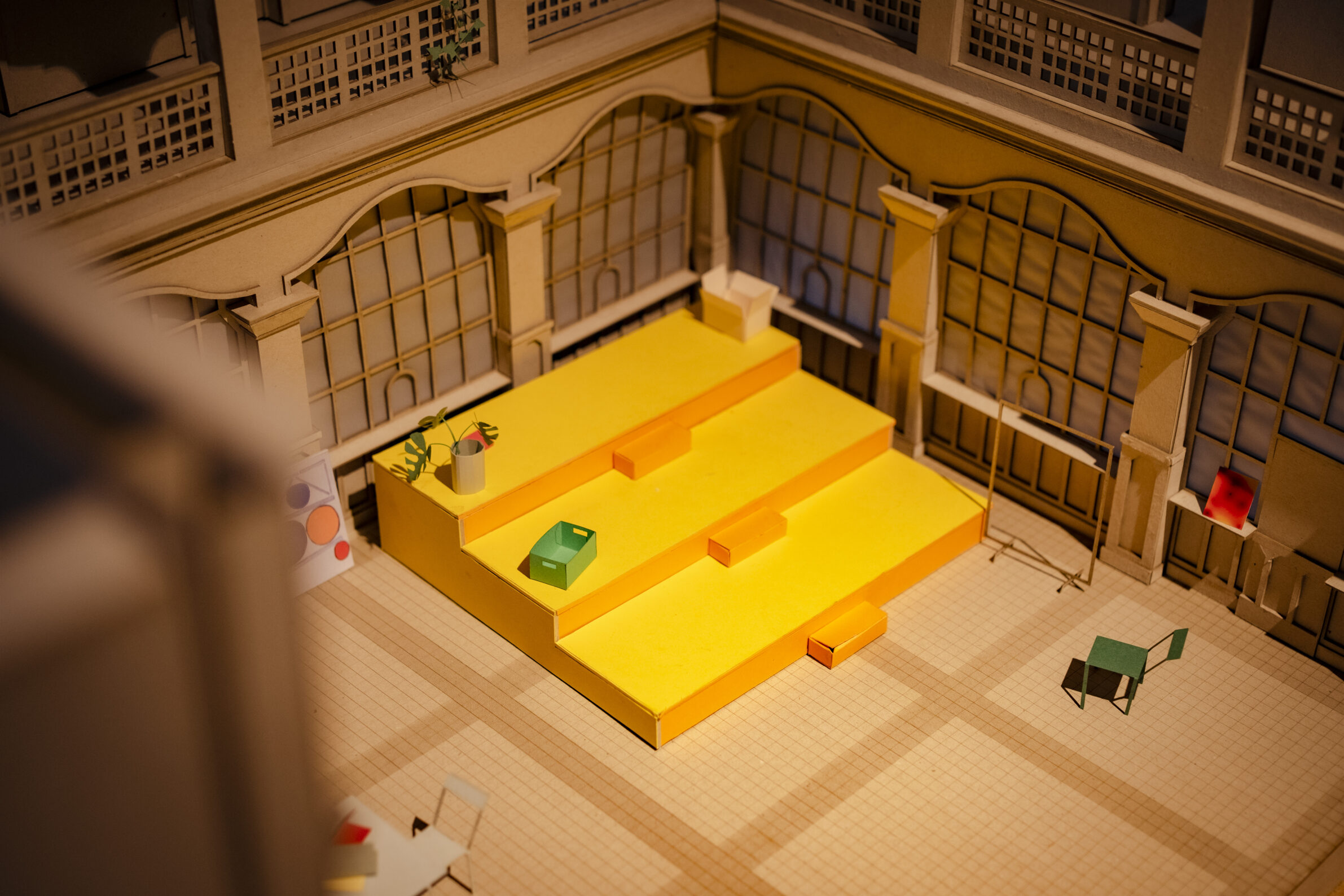
Model of the Stochna Gara project
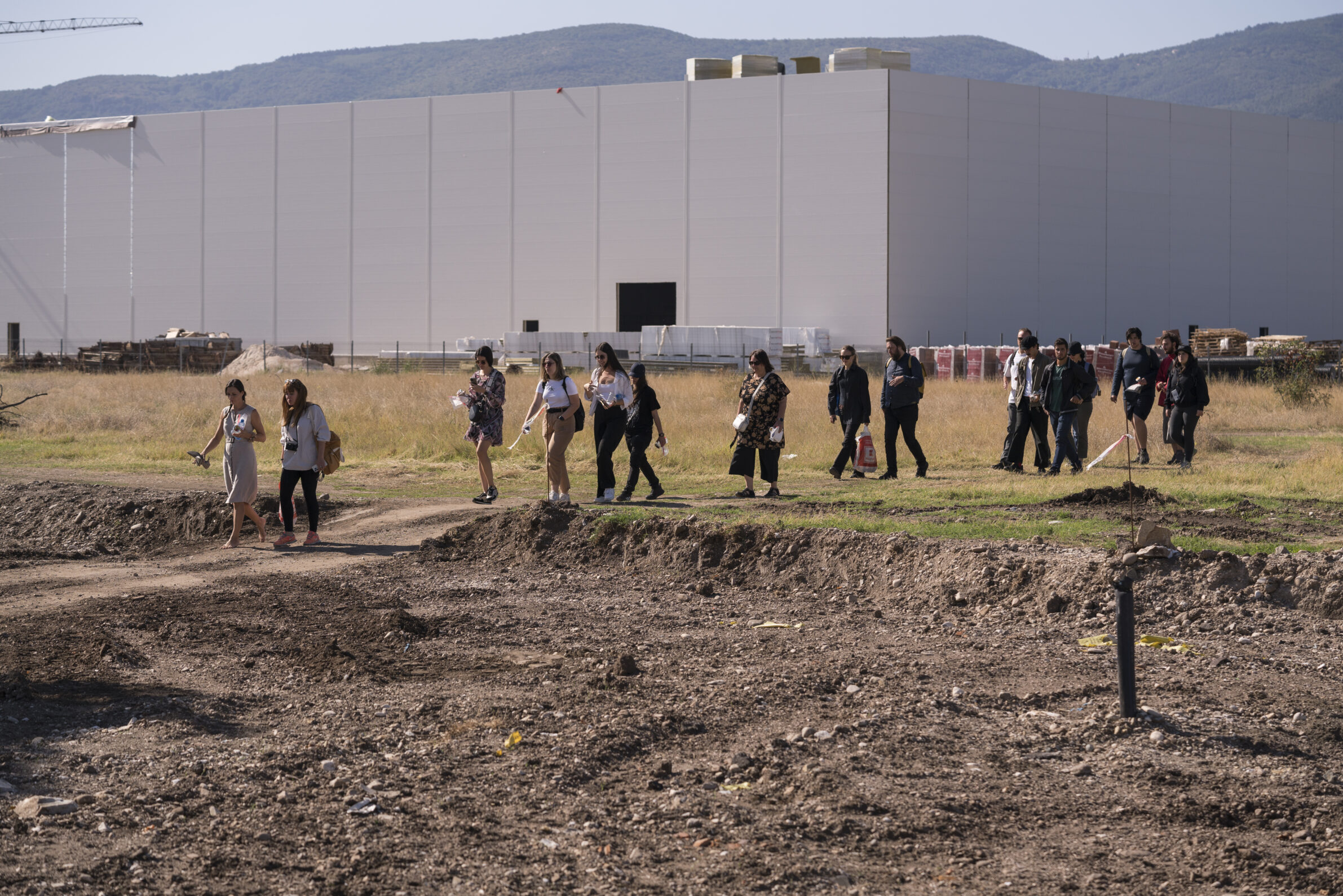
Biodiversity mapping of the Kuklen Industrial Park as a part of Gradoscope’s “Soil Awareness” project
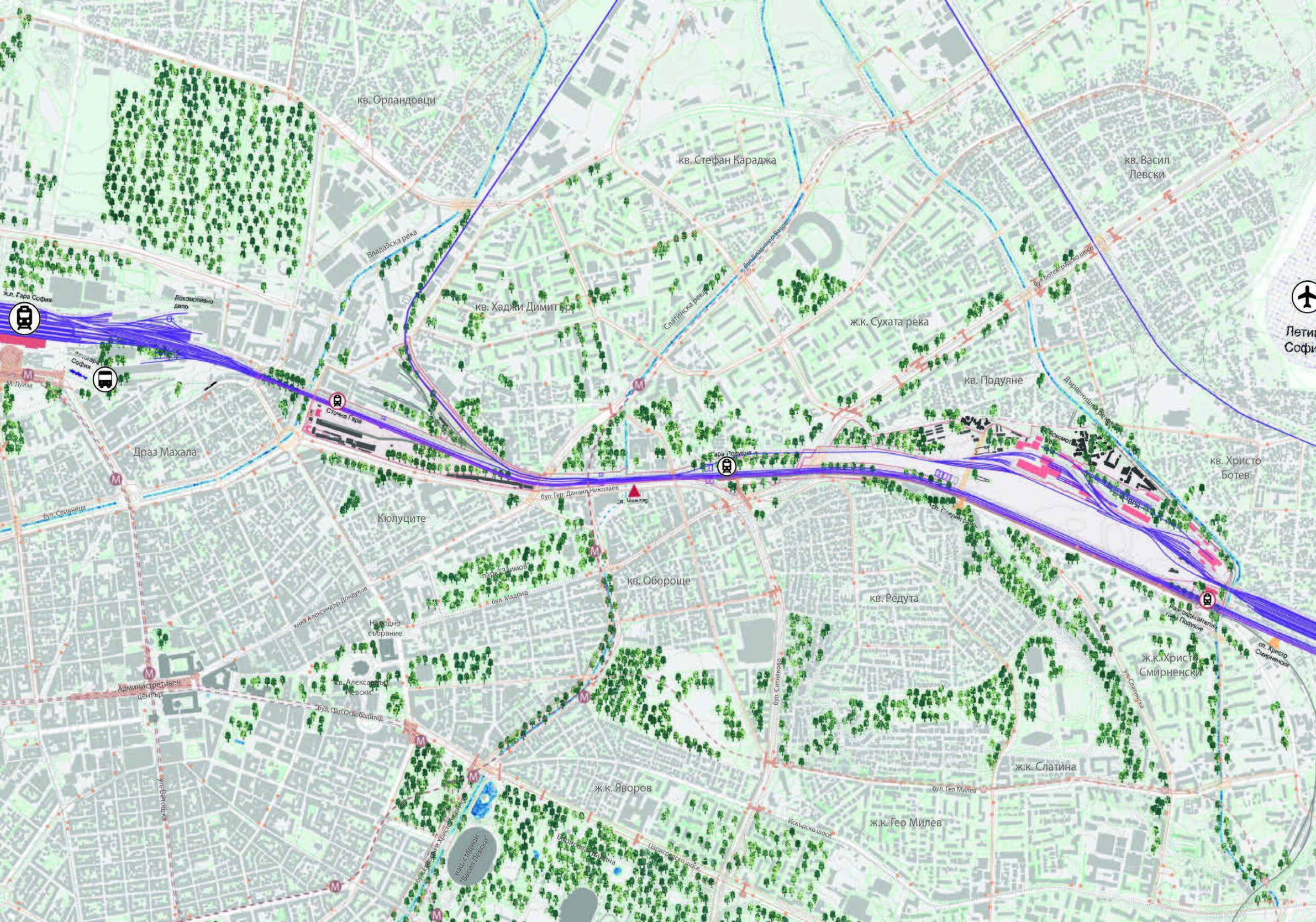
Map of Sofia showing the Stochna Gara area
The process was followed by a three-day forum and neighbourhood festival dedicated to the possible sustainable activation of the areas from Stochna to Poduyane-Razpredelitelna stations in Sofia, supported by the EIT European Institute for Technology and the New European Bauhaus Initiative. Three pilot projects were identified in a large public and expert discussion – the adaptation of Stochna Gara building to a public centre, the creation of a railway park, and finally starting a new centre on circular re-use practices. At present, the Gradoscope team is engaged in the implementation of the three projects in continuous dialogue with authorities and public, with the support of a larger network of European partners working on adaptive re-use in the framework of the New Inherit Project.
Text: Ina Valkanova
Photographs: Gradoscope’s archive


